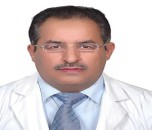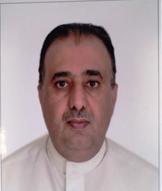Renowned Speakers

Isabelle Hansenne-Cervantes
Modern Meadow USA

Abdulrahman-Al-Asmari
Taif University Saudi Arabia

Dr. Rudina Thanasi
Researcher University of Medicine Carol Davila Bucharest Romania Albania

Bettina Rmmelein
House Of Skin & Laser Medicine Switzerland

Takuya Kajisa
Juntendo University Japan

Adolfo Napolez
University of Manchester USA

Clemens Esche
Beautiful Skin Institute in Northern Virginia USA

Ali Al Amr
Prince Suitan Military Medical City Saudi Arabia
Recommended Global Dermatology Webinars & Conferences
Europe & UK
Asia Pacific & Middle East
Canada
World Dermatology 2024
About Conference:
Dermatology, a vibrant discipline committed to understanding and tending to the complexities of skin, hair, and nails, remains in a constant state of evolution propelled by groundbreaking research and technological innovation. As a testament to these ongoing advancements and with the aim of nurturing collaboration among dermatologists, researchers and healthcare experts, the annual Dermatology Conference assumes a prominent role. This esteemed gathering serves as a beacon, shedding light on the most recent trends, pioneering research discoveries, and the most effective clinical practices, creating an indispensable forum for the exchange of knowledge and expertise.
In the heart of Paris, a city where tradition meets innovation, we are delighted to welcome you to the 25th World Dermatology Congress on August 24-25, 2024 in Paris, France. This gathering is a celebration of the past, present, and future of dermatology, under the illuminating theme: "Innovations in Dermatology: Bridging Science and Skin Health."
Why Attend?
Embark on a two-day journey through the latest breakthroughs and advancements in dermatology. This congress is your portal to:
- Cutting Research: Dive into the latest discoveries that are shaping the future of skin health.
- Global Networking: Connect -edge with pioneers and fellow professionals from across the globe.
- Practical Workshops: Enhance your skills and knowledge through hands-on sessions and interactive discussions.
- Inspirational Talks: Hear from the luminaries driving change and innovation in dermatology.
Our Mission:
To forge a future where every discovery and innovation in dermatology translates into accessible, effective, and improved patient care worldwide.
Our Vision:
To establish a global community of dermatology professionals that thrives on collaboration, innovation, and shared success, committed to advancing skin health for all.
Target Audience:
- Dermatology Residents
- Researchers
- Nurse Practitioners and Physician Assistants
- Pathologists
- Pharmaceutical Professionals
- Dermatology Nurses
- Cosmetic Dermatologists
- Dermatopathologists
- Medical Students
- Healthcare Administrators
- Dermatological Equipment Manufacturers
- Skincare Product Developers
- Healthcare Regulators and Policymakers
- Patient Advocacy GroupsDermatologists
Conference Opportunities:
For Researchers and Faculty Members:
- Speaker Presentations
- Poster Display
- Symposium hosting (4-5 member teams)
- Workshop organizing
For Universities, Associations & Societies:
- Association Partnering
- Collaboration proposals
- Academic Partnering
- Group Participation
For Students and Research Scholars:
- Poster Competition (Winner will get Best Poster Award)
- Young Researcher Forum (YRF Award to the best presenter)
- Student Attendee
- Group registrations
For Business Delegates:
- Speaker Presentations
- Symposium hosting
- Book launch event
- Networking opportunities
- Audience participation
For Product Manufacturers
- Exhibitor and Vendor booths
- Sponsorships opportunities
- Product launch
- Workshop organizing
- Scientific Partnering
- Marketing and Networking with clients
Tracks | Sessions:
Track 1: Teledermatology and Digital Health Innovations
Teledermatology and digital health innovations stand at the forefront of modernizing skin care, bringing expert dermatological advice to the tips of our fingers. Through high-quality digital imaging and virtual consultations, patients anywhere can now access specialist care without the constraints of location or long waits. This leap forward is especially crucial in areas where dermatologists are scarce. Furthermore, the rise of smart health apps and wearable technology offers continuous monitoring and personalized advice, empowering individuals to manage their skin health proactively. These digital tools not only democratize access to specialized care but also streamline the patient-doctor interaction, making it more efficient and responsive. As we navigate through this digital era, teledermatology is not just an alternative; it's becoming an integral component of holistic dermatological care, promising a future where everyone can enjoy healthier skin with the help of technology.
Track 2: Precision Medicine in Dermatology
Precision medicine in dermatology is like creating a tailored suit for your skin health. It's all about using advanced genetic insights to customize treatments specifically for you. By analyzing your unique genetic makeup, lifestyle factors, and even environmental influences, dermatologists can pinpoint the root causes of skin conditions such as psoriasis or melanoma. This precision approach helps doctors prescribe targeted therapies that work directly on the molecular level, leading to better results with fewer side effects. Imagine treatments designed just for you, offering hope for more effective care and management of skin diseases. Precision medicine is not just the future; it's the personalized present of dermatological innovation.
Track 3: Microbiome and Skin Health
The skin's microbiome, like a bustling city of tiny residents, plays a crucial role in our skin health. This community of bacteria, fungi, and viruses living on our skin's surface acts as a protective shield and interacts with our immune system. When this balance is disrupted, skin conditions like acne, eczema, and rosacea can arise. Understanding and nurturing this microbiome is key to healthy skin. Research is exploring how probiotics, prebiotics, and even certain skincare products can promote a diverse and resilient skin microbiome. By harnessing the power of these microscopic allies, we're paving the way for innovative treatments that work with our skin's natural ecosystem, offering a promising future for skin health and care.
Track 4: Advanced Therapeutics for Autoimmune Skin Diseases
They are breakthrough treatments that precisely target the body's immune system. Conditions like lupus, scleroderma, and vitiligo, where the immune system attacks healthy skin, now have innovative solutions. Biologics, small molecule drugs, and immune-modulating therapies are leading the way, providing effective symptom relief and disease control. By focusing on specific immune pathways, these therapies reduce inflammation and halt disease progression. Dermatologists are now equipped with powerful tools to help patients manage and improve their quality of life with autoimmune skin diseases, marking a significant leap forward in dermatological care.
Track 5: Non-invasive Diagnostic Techniques
Technologies such as confocal microscopy and optical coherence tomography use advanced imaging to examine skin layers in high detail, aiding in the early detection of skin cancers and other conditions. Dermatologists also employ dermoscopy, a magnifying tool, to study skin lesions closely. These techniques provide quick, painless, and accurate assessments, guiding treatment decisions and ensuring better patient outcomes.
Track 6: Regenerative Dermatology and Wound Healing
Regenerative dermatology and wound healing are like nature's own repair kits for the skin. Using stem cells, growth factors, and innovative scaffolds, dermatologists are now able to stimulate the body's natural healing processes. These therapies are especially beneficial for chronic wounds, burns, and conditions like diabetic ulcers. By harnessing the body's own regenerative abilities, these treatments promote new tissue growth, faster healing, and improved outcomes. They represent a promising frontier in dermatology, offering hope for patients with challenging wounds and skin conditions.
Track 7: Innovations in Dermatologic Surgery
Innovations in dermatologic surgery are transforming procedures into precision artistry. Techniques such as laser therapy, cryotherapy, and Mohs micrographic surgery are at the forefront, offering precise and minimally invasive options. Dermatologists now utilize advanced tools for scar revision, skin cancer removal, and cosmetic procedures. These innovations ensure better outcomes with less downtime for patients. Additionally, robotic-assisted surgery is gaining traction, enabling even finer precision and control. With these advancements, dermatologic surgery is evolving into a realm of refined techniques, enhancing both the cosmetic and functional aspects of skin procedures. Patients benefit from safer, more effective, and aesthetically pleasing results.
Track 8: AI and Machine Learning in Dermatology
These technologies analyze vast amounts of data, from images of skin conditions to patient histories, to assist dermatologists in diagnosis and treatment planning. By learning from patterns and trends, AI algorithms can offer more accurate and timely assessments of skin diseases. They aid in early detection of melanoma, predict treatment outcomes, and personalize care plans. With AI's help, dermatologists can make informed decisions, improving patient outcomes and streamlining workflows. This marriage of technology and dermatology represents a powerful leap forward in precision and efficiency, promising a brighter future for skin health.
Track 9: Skin of Color Dermatology
Skin of color dermatology is a specialized field addressing the unique needs of diverse skin tones. Conditions like melasma, keloids, and pseudofolliculitis barbae are more prevalent and often present differently in individuals with darker skin. Dermatologists in this field tailor treatments to ensure effectiveness while minimizing the risk of pigmentation changes or scarring. Additionally, they focus on addressing healthcare disparities and cultural considerations in patient care. Through research and education, skin of color dermatology aims to promote inclusivity and improve outcomes for individuals of all ethnic backgrounds, ensuring that everyone receives personalized and effective dermatologic care.
Track 10: Research and Emerging Therapies
Research and emerging therapies in dermatology are the frontier of skin health breakthroughs. Scientists are constantly exploring new treatments and technologies to tackle skin diseases. From gene editing for genetic skin disorders to nanotechnology for targeted drug delivery, the possibilities are expanding. Innovative therapies like immunotherapy for skin cancers and regenerative medicine for wound healing show promise for revolutionizing dermatologic care. Through clinical trials and collaborations, dermatologists are at the forefront of testing and implementing these advancements. Research in dermatology not only enhances treatment options but also offers hope for patients seeking effective and personalized solutions for their skin conditions.
Track 11: Dermatopathology
Dermatopathology is the art of diagnosing skin diseases through microscopic examination. Dermatopathologists analyze skin biopsies, identifying cellular changes and patterns to diagnose conditions accurately. From skin cancers to inflammatory disorders, this specialized field plays a crucial role in guiding treatment decisions. Advanced techniques like immunohistochemistry and molecular testing further enhance diagnostic accuracy. By unraveling the mysteries of skin pathology, dermatopathologists provide essential insights that shape patient care and outcomes. Their expertise ensures that every skin biopsy tells a story, leading to precise diagnoses and effective treatments for a wide range of dermatologic conditions.
Track 12: Global Dermatology
Global dermatology, encompassing tropical dermatology and skin diseases in global health, addresses skin concerns worldwide. Tropical dermatology focuses on diseases prevalent in tropical regions, such as leishmaniasis and fungal infections, while skin diseases in global health tackle healthcare disparities and neglected conditions. Dermatologists collaborate internationally to develop strategies for prevention, diagnosis, and treatment. By understanding and addressing the unique challenges faced in different regions, global dermatology aims to improve skin health for all. Through education, research, and advocacy, dermatologists work towards a future where quality dermatologic care is accessible
Track 13: Special Interest Topics
- Psychodermatology: Exploring the link between skin and mind, psychodermatology investigates how emotions and stress impact skin health. Dermatologists use this knowledge to develop holistic treatments addressing both mental and dermatological well-being.
- Dermatology in the Setting of COVID-19: This topic delves into the cutaneous manifestations of COVID-19 and the skin reactions associated with vaccines. Dermatologists study these effects to improve diagnosis, treatment, and prevention strategies.
- Environmental and Occupational Dermatology: Focusing on skin health in various work and environmental settings, this field addresses conditions caused by exposures to pollutants, chemicals, and other factors. Dermatologists work to identify risks, provide protection, and offer treatments tailored to occupational and environmental skin concerns.
Track 14: Dermatology Education and Ethics
- Innovations in Dermatology Education: This area explores modern approaches to teaching dermatology, incorporating technology, simulation, and interactive methods to enhance learning. Dermatologists are developing innovative curricula to train the next generation of skin specialists effectively.
- Ethical Considerations in Dermatology: Addressing ethical dilemmas in patient care and research, this topic examines issues such as patient consent, confidentiality, and conflicts of interest. Dermatologists navigate these challenges to ensure patient trust, privacy, and the highest standards of care in their practice and research endeavors.
Market Analysis:
Market Size and Growth: The global dermatology market was valued at approximately $46.9 billion in 2020 and is projected to reach $67.6 billion by 2027, growing at a CAGR of 5.1% from 2021 to 2027.
Skin Disorders Prevalence: Skin disorders such as acne, eczema, psoriasis, skin cancer, and rosacea continue to affect millions worldwide, driving the demand for dermatological treatments and therapies.
Cosmetic Dermatology: The cosmetic dermatology segment is witnessing robust growth, fueled by a rising focus on aesthetics, beauty consciousness, and the availability of minimally invasive procedures.
Technological Advancements: Advancements in laser technology, light-based therapies, injectables, and topical treatments are expanding the scope of dermatological procedures and improving patient outcomes.
Telemedicine and Digital Health: The COVID-19 pandemic accelerated the adoption of teledermatology and digital health solutions, enabling remote consultations, diagnosis, and monitoring of skin conditions. This trend is expected to continue post-pandemic.
Emerging Markets: Emerging markets in Asia-Pacific, Latin America, and the Middle East are witnessing rapid growth due to increasing disposable income, improving healthcare infrastructure, and a rising focus on skincare.
Challenges: Regulatory hurdles, reimbursement challenges, and the high cost of dermatological treatments pose challenges to market growth.
Opportunities: The development of personalized medicine, gene editing technologies, and regenerative therapies offers significant opportunities for innovation in dermatology.
Sustainability and Green Dermatology: The trend towards eco-friendly and sustainable skincare products, along with the rise of "green" dermatology practices, reflects growing consumer awareness of environmental impact.
Impact of COVID-19: The pandemic led to disruptions in dermatology clinics and procedures, but also accelerated the adoption of telemedicine, digital health tools, and contactless skincare solutions.
Conclusion: The dermatology market continues to expand globally, driven by a combination of factors including the rising prevalence of skin disorders, advancements in technology, increasing consumer awareness of skincare, and the growing demand for cosmetic procedures. Opportunities lie in personalized medicine, digital health innovations, emerging markets, and sustainability trends, while challenges include regulatory complexities and healthcare access disparities. Overall, the dermatology industry is poised for steady growth and innovation in the coming years.
To Collaborate Scientific Professionals around the World
Conference Date August 24-25, 2024
For Sponsors & Exhibitors
Speaker Opportunity
Useful Links
Past Conference Report
Supported By
All accepted abstracts will be published in respective Conference Series International Journals.
Abstracts will be provided with Digital Object Identifier by



